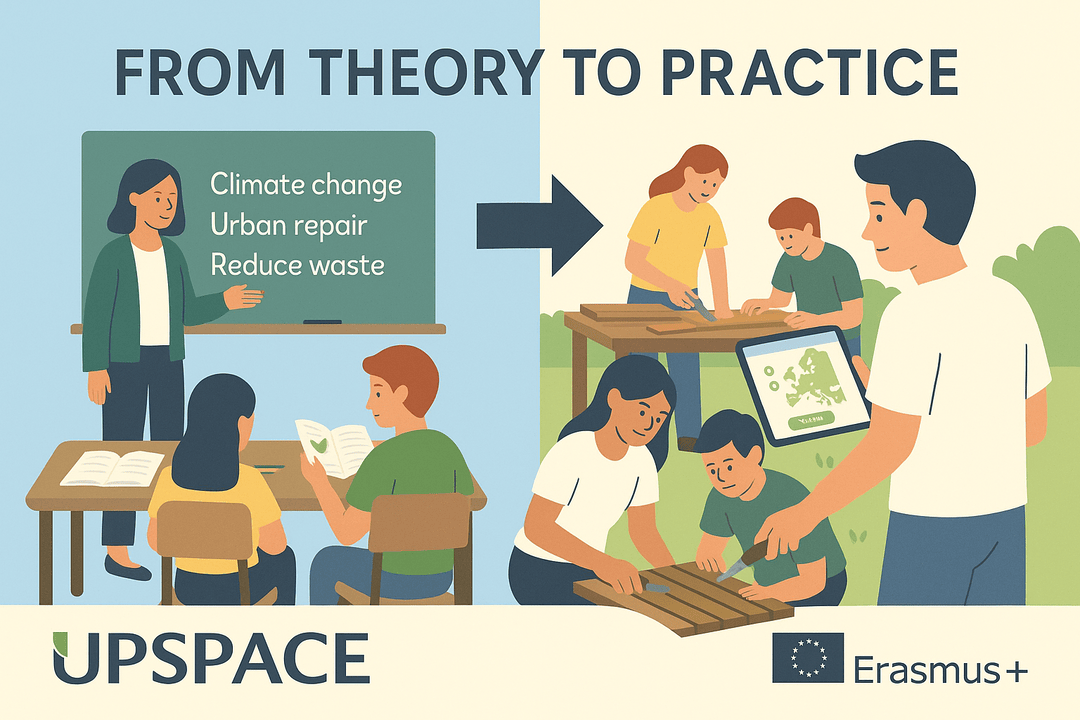Many schools today talk about climate change and sustainability. Lessons often include topics like global warming, recycling, and energy use. But despite these topics are mentioned often, they in most cases remain titles and problems that students should discuss in more depth. Pupils hear about problems, but don’t learn how to take part in solving them. They rarely see how these issues connect to their daily lives or to their future.
UpSpace is a small European project that combines 8 schools and local organisations into a consortium. Its aim is to make environmental issues part of the real work students do, in 4 countries, not just the subjects they study. Instead of reading about waste and pollution, students sort and reuse materials. Instead of only learning about sustainable cities, they take part in urban repair.
The project runs several types of activities. One such activity is the Urban Regeneration Lab, which will take students through their neighbourhood or school's neighbourhood - they will note areas in poor condition, and will suggest improvements. Then they work with their teachers and local community to carry out these small changes. These might include cleaning a park, repairing a fence, or planting flowers. It is simple work, but it teaches responsibility. Students see that action is possible and that their ideas can make a difference. Not only they learn about urban regeneration through this process, but they also find out how it is about to be a responsible citizen, who will participate in the society.
Another part of the project is the Upcycling Lab. In this activity, students collect used materials — furniture, fabrics, tools — and turn them into useful items. This teaches them about the value of resources and how to reduce waste. But it also develops planning, design, and teamwork skills. Instead of throwing away a broken chair, students learn how to fix it. This is more than just recycling—it is a different way of thinking.
UpSpace also includes digital and blended learning. A key component of the project is an online platform where students can explore green topics, share project results, and see what others across Europe are doing. This helps them understand that they are not alone. It also builds a sense of belonging and purpose.
UpSpace treats students as people who can act, not just learn. It does not wait for textbooks to be updated or for national policies to change. It creates small-scale, local examples that can be used right now. Teachers do not have to become climate experts — they get step-by-step guides, examples, and support.
Green transition is a major challenge for Europe. It requires changes in how we produce, consume, move, and live. Schools cannot solve this alone. But they can prepare young people to understand the changes, and to take part in them. Not by preaching, but by doing.
That is the main idea behind UpSpace. Give students a task. Help them complete it. Let them see the result. And make that task part of building a greener future.
